Want to turn a green lane into a brown lane, tow a Gulaschkanone across a snowy field, or roam the Western Desert trashing Axis airfields? Get a 4×4. Want quick introductions to games of interest to realism relishers and old fogies? Read a 3×3. Prior to penning one of these articles I’ll play three tempting titles for at least three hours each. While it would be cavalier to call the reports that result from such brief auditions ‘reviews’, it’s conceivable they might lead to more prolonged playtests, and prompt or prevent the odd purchase.
RBM Studio’s Gettysburg
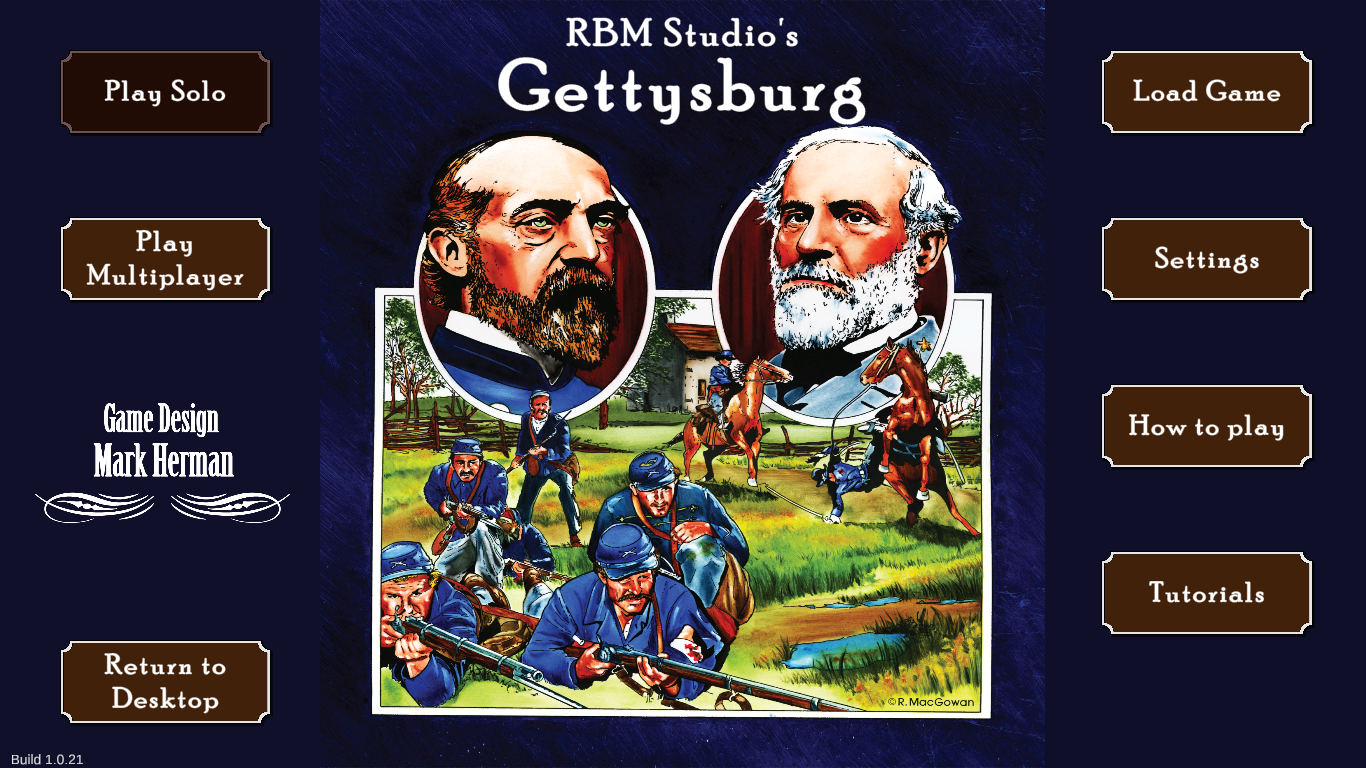
Capturing the feel and flow of the Battle of Gettysburg using just thirty counters, six turns, and couple of six-sided dice, sounds impossible, but in 2018 the prolific Mark Herman proved it could be done. This four-quid single-scenario effort is his pacy/popular magazine wargame deftly digitised. How well you like it will probably depend on how stoical you are when confronted by dice-delivered bad luck.
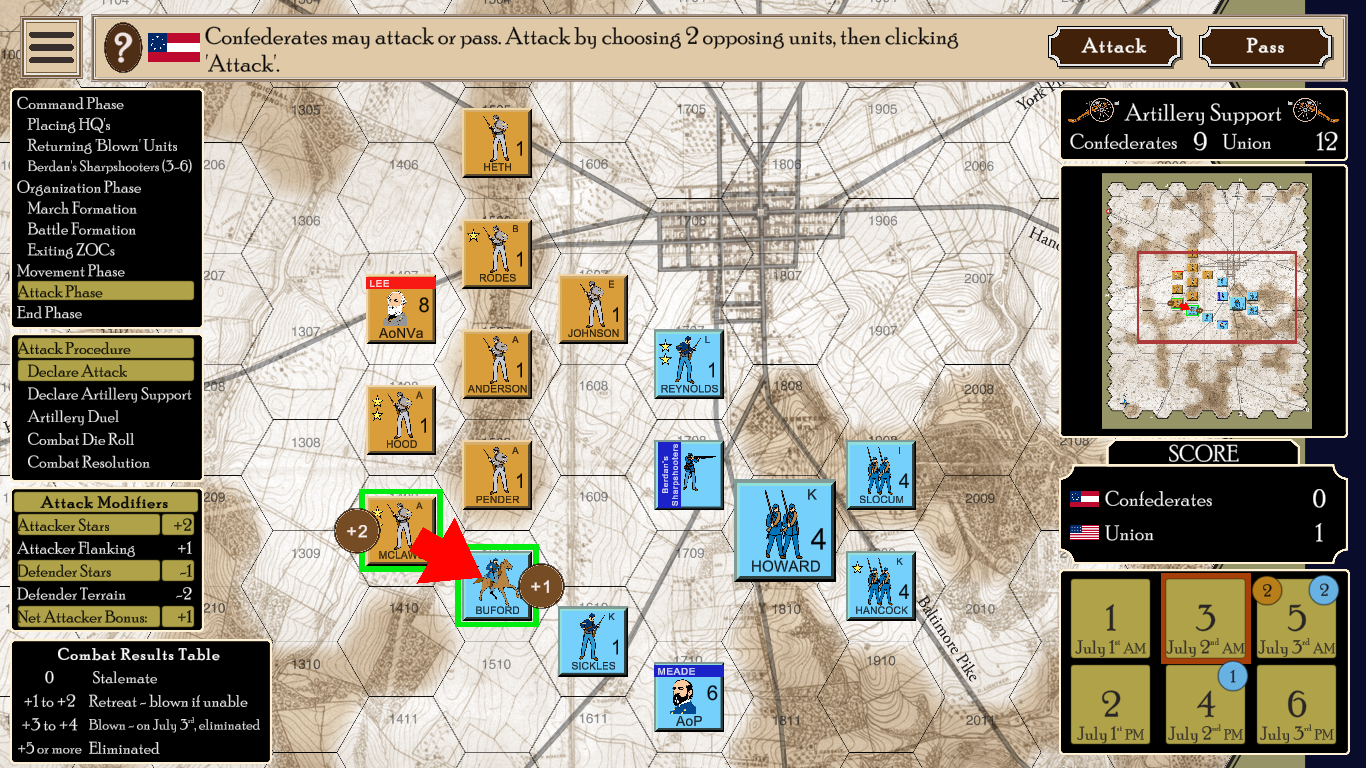
Luck is important in RBM Studio’s Gettysburg. Because, when resolving attacks, high dice rolls are just as influential as favourable terrain, seasoned troops, and flanking manoeuvres, the game can feel capricious at times.
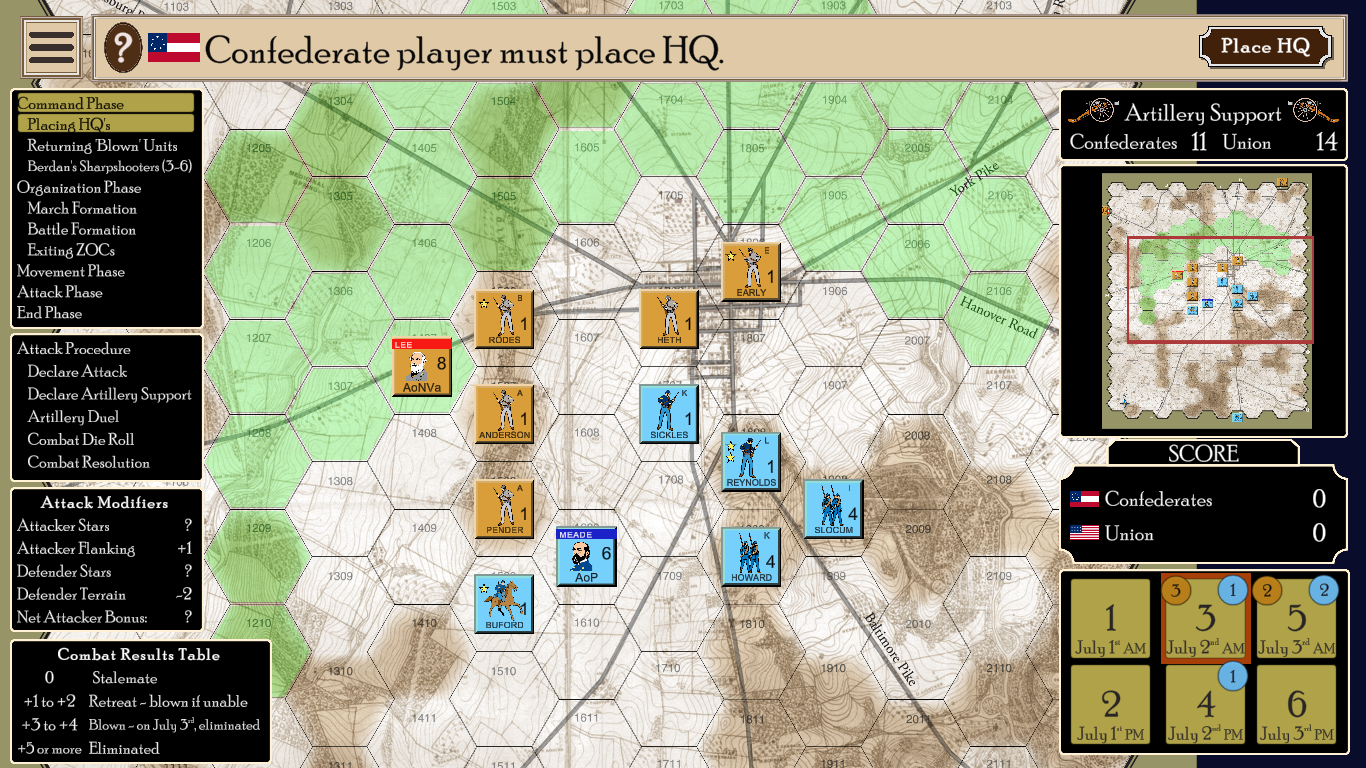
Herman’s unusual approach to artillery exaggerates rather than offsets the chancy combat mechanics. If both sides decide to call for arty support during an inter-hex clash (the Federals start with more arty points than the Rebels so can afford to be a little more extravagant with their heavy ordnance) then an artillery duel results. The side that loses this duel by rolling a lower score in a 1D6 dice-off gets zero benefit from their investment while the winning side enjoys a +2 modifier. Stark stuff!
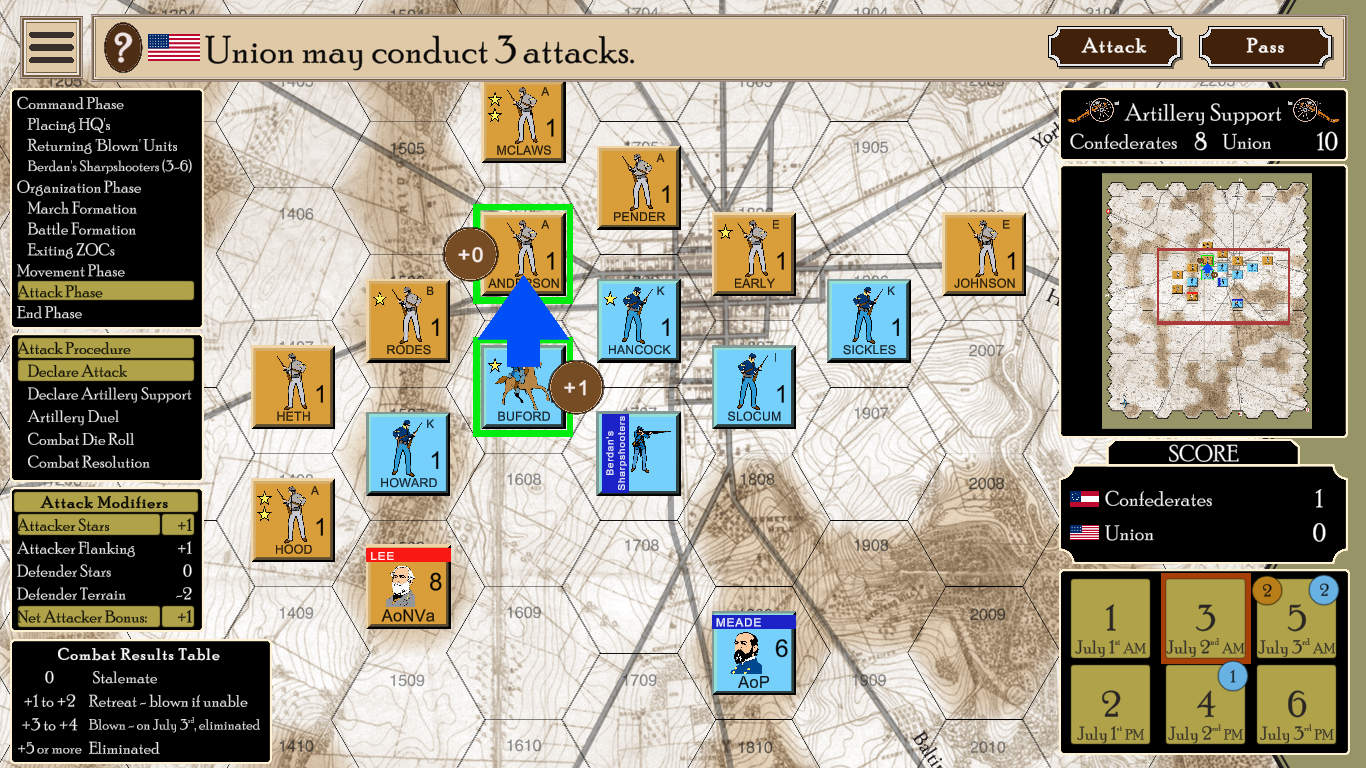
It’s not uncommon to launch a local attack with that +2 and another bonus in your corner, and still end up a unit poorer because you rolled a 1 or 2 during the crucial combat resolution roll. Yes, exactly the same thing can happen to your opponent a few seconds later, but when the whole battle can be decided by a single unit elimination (every unit destroyed is a victory point gained) such upsets have the power to rankle.
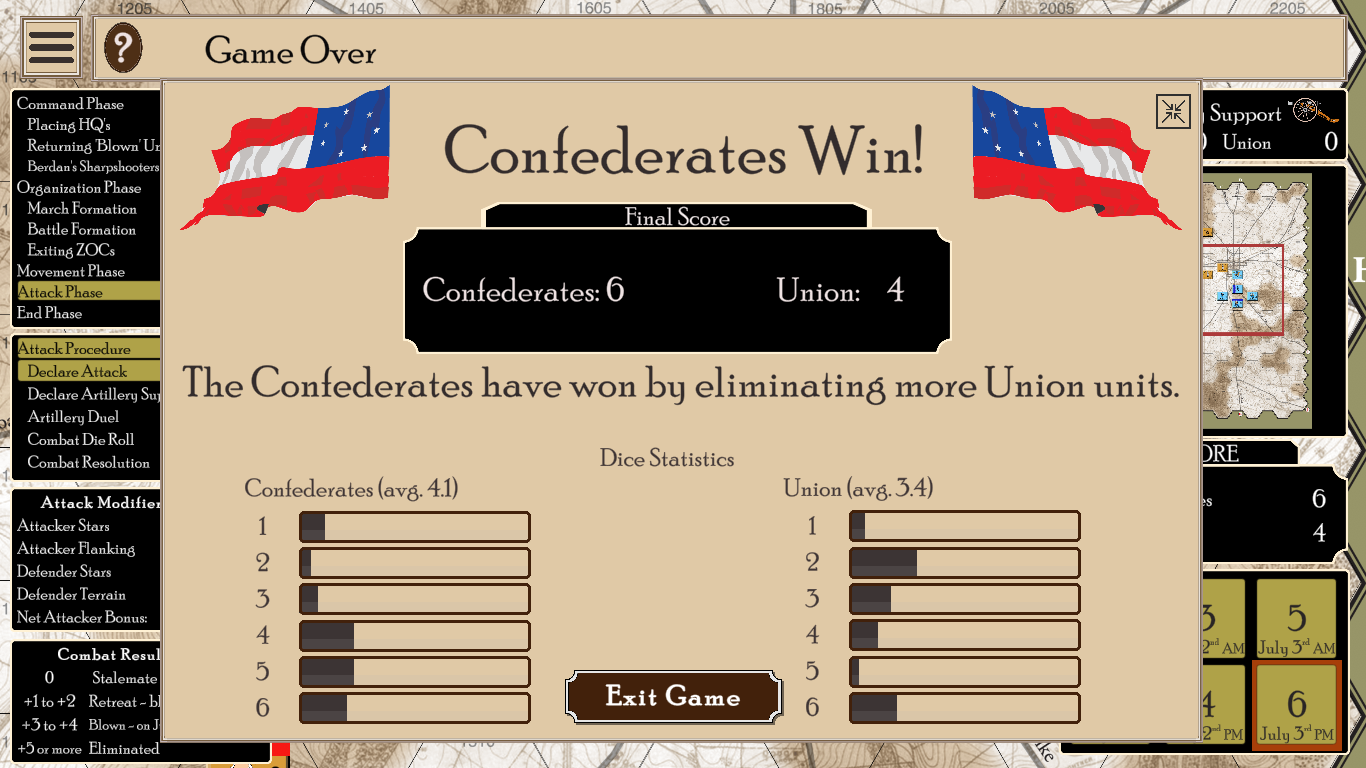
While I’m not a fan of its dominant dice, there will always be a place on my shelf for a wargame that lets me fight the bloody turning point of the ACW from start to finish in less than half an hour. I like the way turns in RBM Studio’s Gettysburg aren’t rigidly IGO-UGO (after the movement phase is over each side gets a random number of additional movements/attacks), and unit setbacks come in three different forms – forced retreat, temporary removal from the map, and extinction. Oh, and I wish more wargames offered opposition this accomplished too.
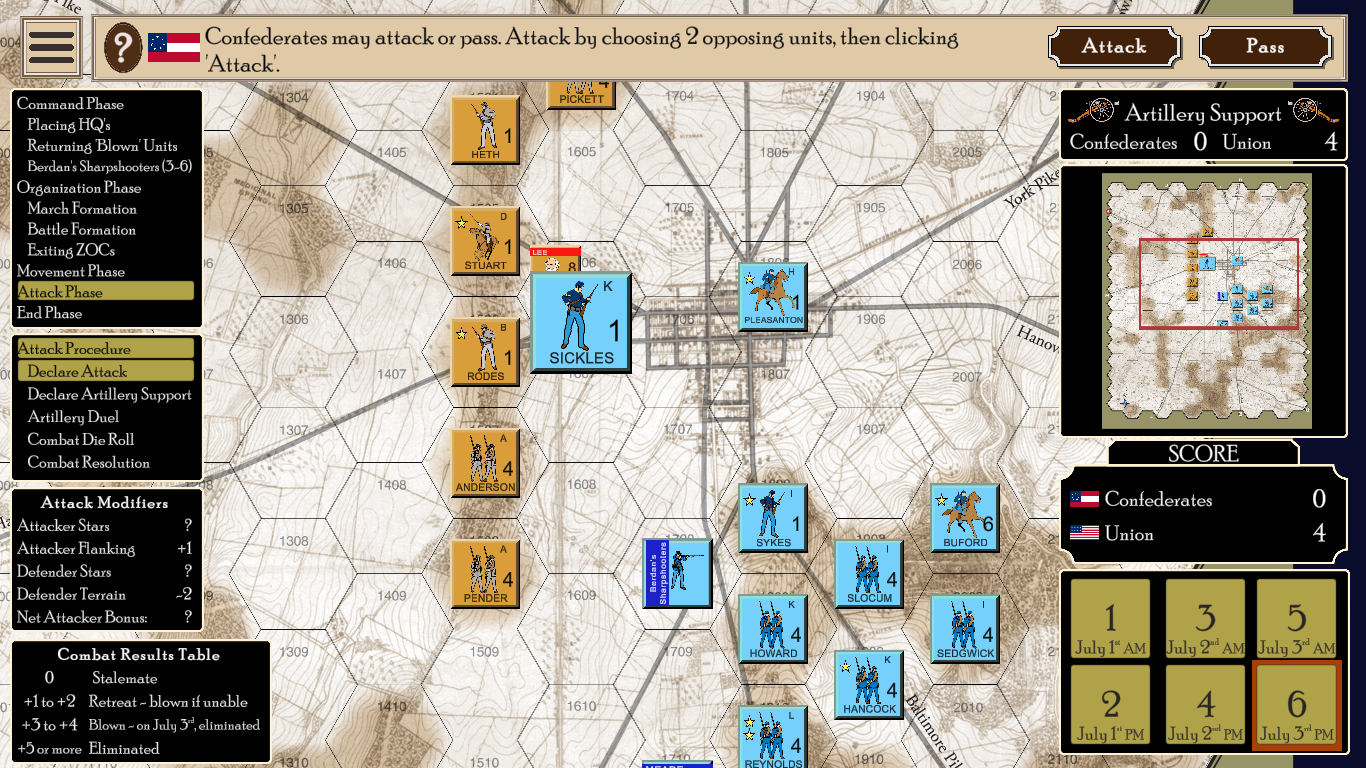
Fond of the high ground that shaped the real battle, and keen-eyed when it comes to spotting vulnerable chits, the AI plays remarkably effectively. At times enemy units even seem to exhibit historical characteristics. Appropriately, the most ambitious attacks I witnessed/weathered during my playtest were mounted by Sickles and Pickett.
* * *
Poems & Codes
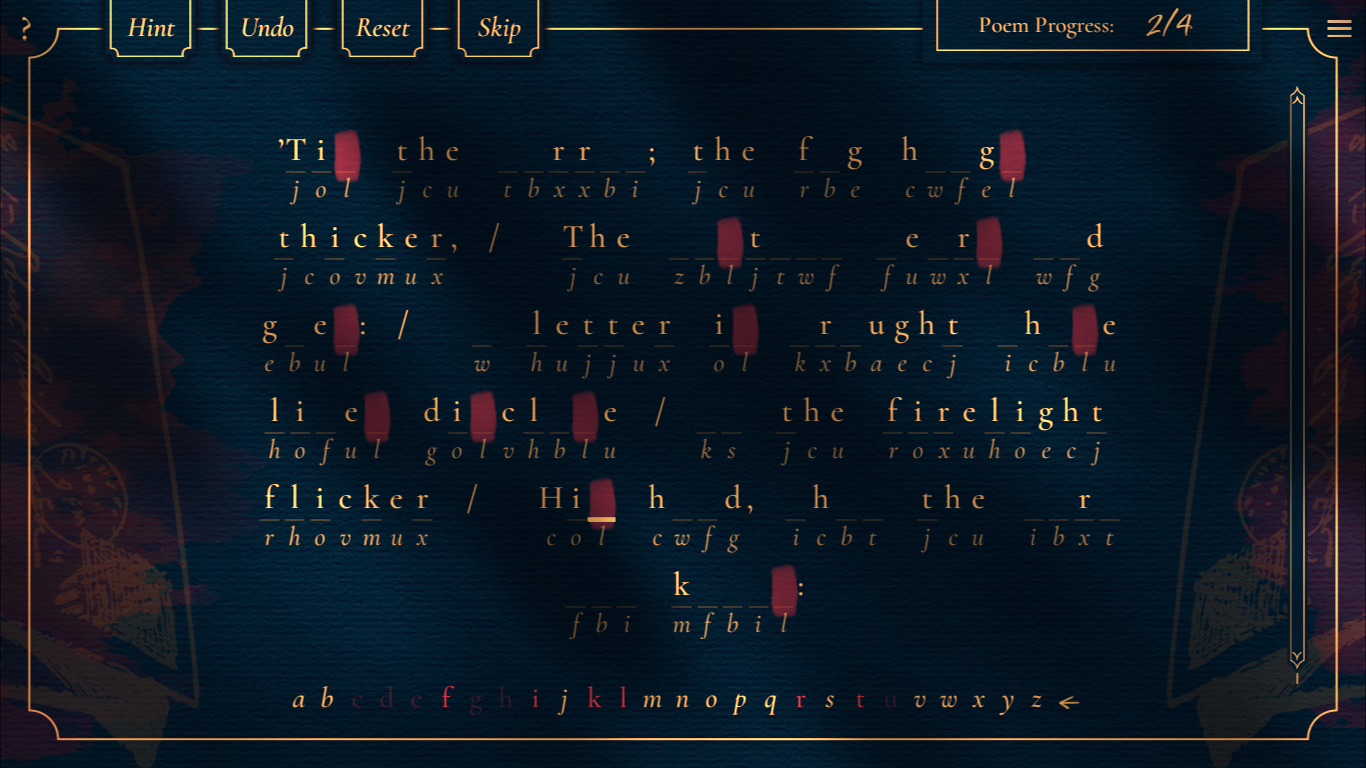
One of my new year resolutions was to spend less of my spare time watching Russian soldiers getting blown to bits in Ukraine, and more of it reading poetry. A couple of my bookshelves accommodate nothing but verse and many of the tomes on them haven’t been opened in over thirty years. The works of Lawrence, Hardy, Clare, Kipling, Donne, Dickinson, Patchen, Bukowski, Holub, Yevtushenko etc deserve sunlight and exercise, not the cobwebs and dust I’ve given them for the last three decades.
The question is how do you reacquire a lost habit like poetry reading? One answer could be through a simple yet ingenious game like Poems & Codes.
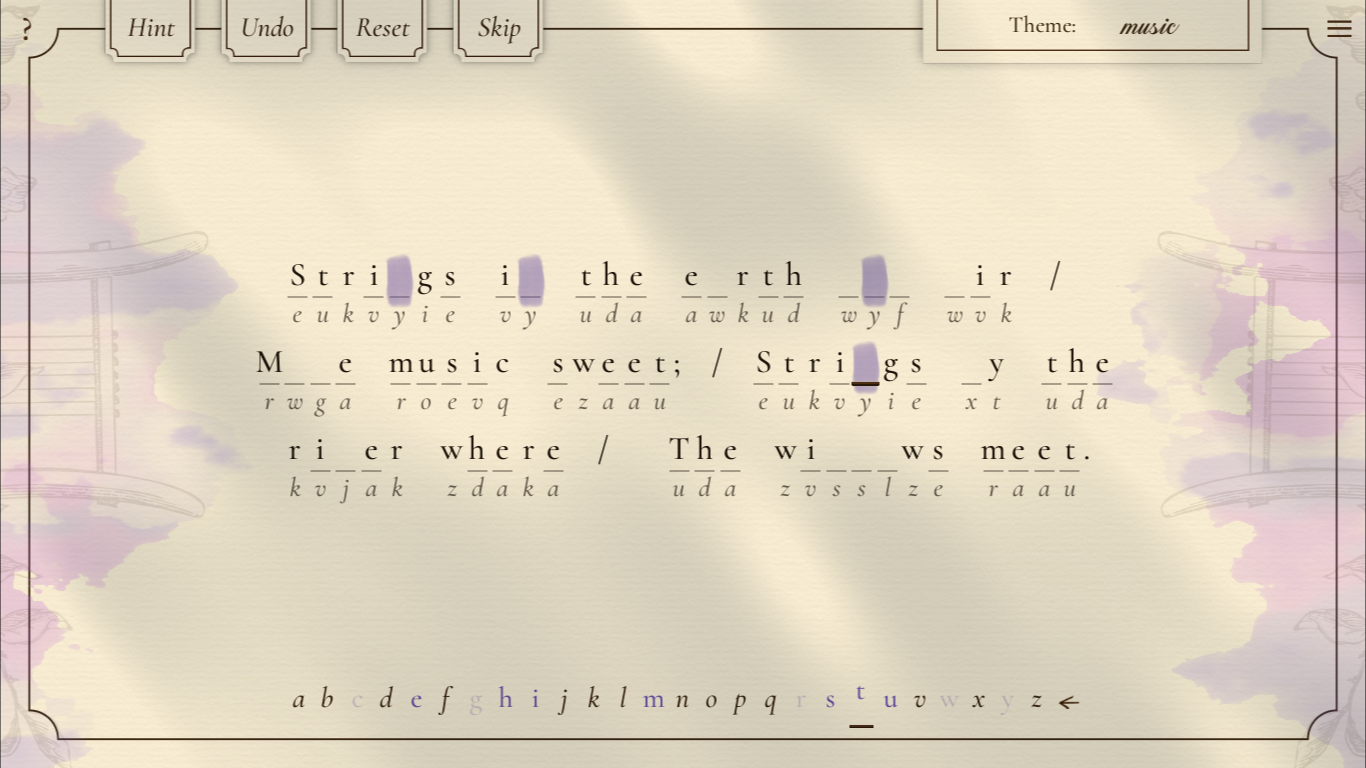
This £8.50 offering takes four hundred chunks of out-of-copyright verse and, using letter substitution ciphers, transforms them into thought-provoking puzzles. The puzzles are sorted by theme – war, nature, love, history, and so on – and arranged in linear sequences. As you can dip into any theme at any time, and there are no time limits, or penalties for mistakes, there’s little danger you’ll ever find yourself hopelessly stuck. Dev Hero Game is more interested in surrounding the player with wonderful wordsmithery than making brains boggle and bleed.
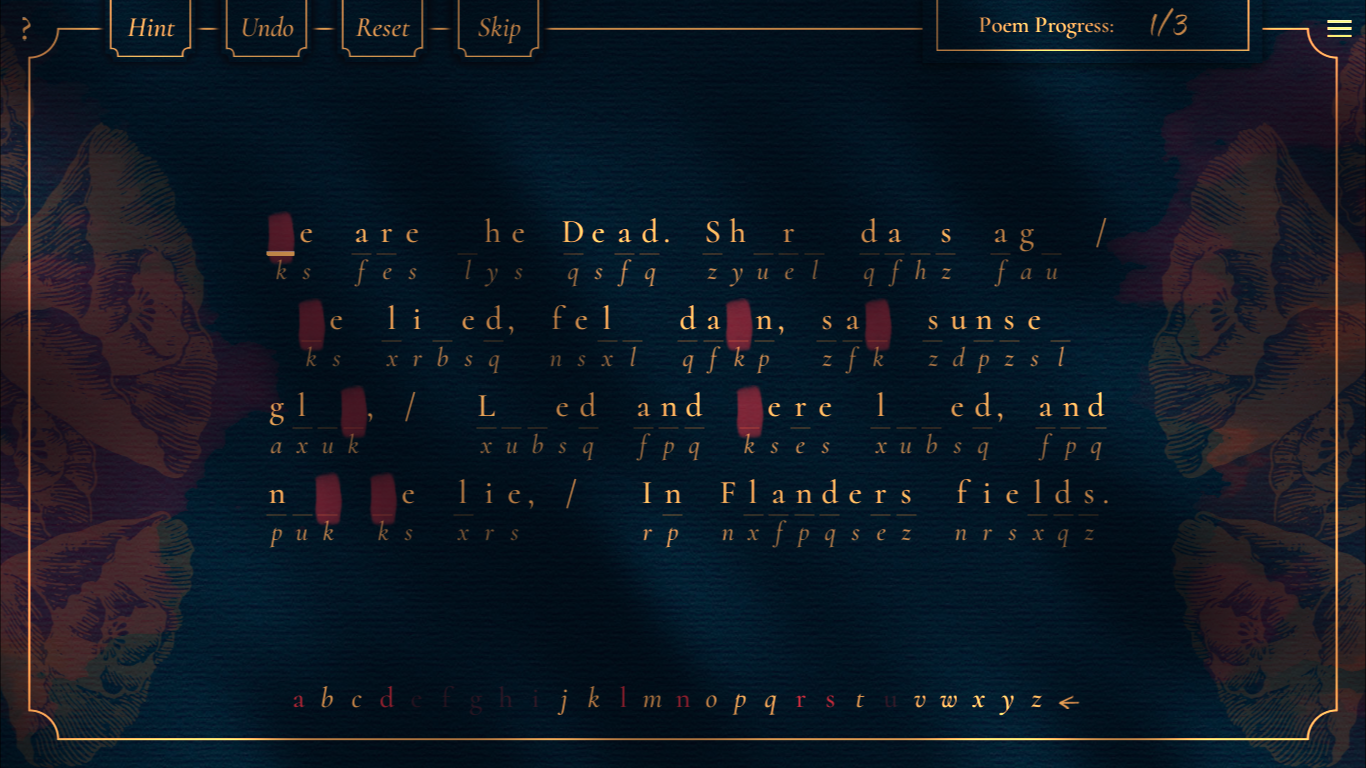
Which isn’t to say the puzzles are easy. Solving a typical one takes a stimulating mix of analysis, trial and error, and inspired guesswork. This letter is extremely common in the text so maybe it’s an ‘e’ or ‘t’… This one often appears as a double letter so perhaps it’s an ‘l’ or ‘s’… This puzzle is in the ‘war’ section, so maybe that eight-letter word starting with ‘F’ is ‘Flanders’!
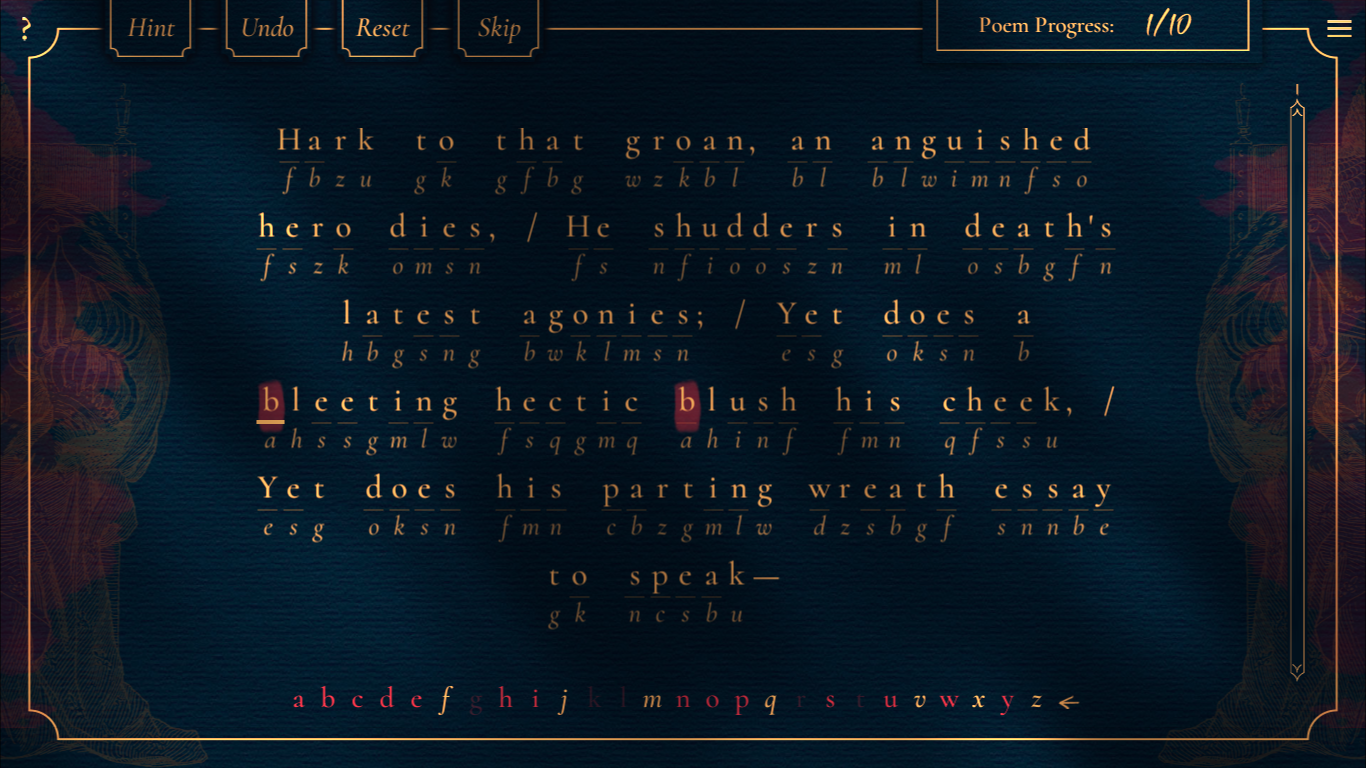
Guess a letter in one location and assuming there are multiple instances of it, your guess will appear elsewhere too. There are some splendid breakthrough moments when the guessing of a long word in one spot, sprinkles invaluable clues all over the screen. Usually things get easier as the blanks disappear, but occasionally – as in the above screenshot – you’ll find yourself poring over a verse that seems, at first glance, to be fully demystified yet refuses to generate a ‘success’ message.
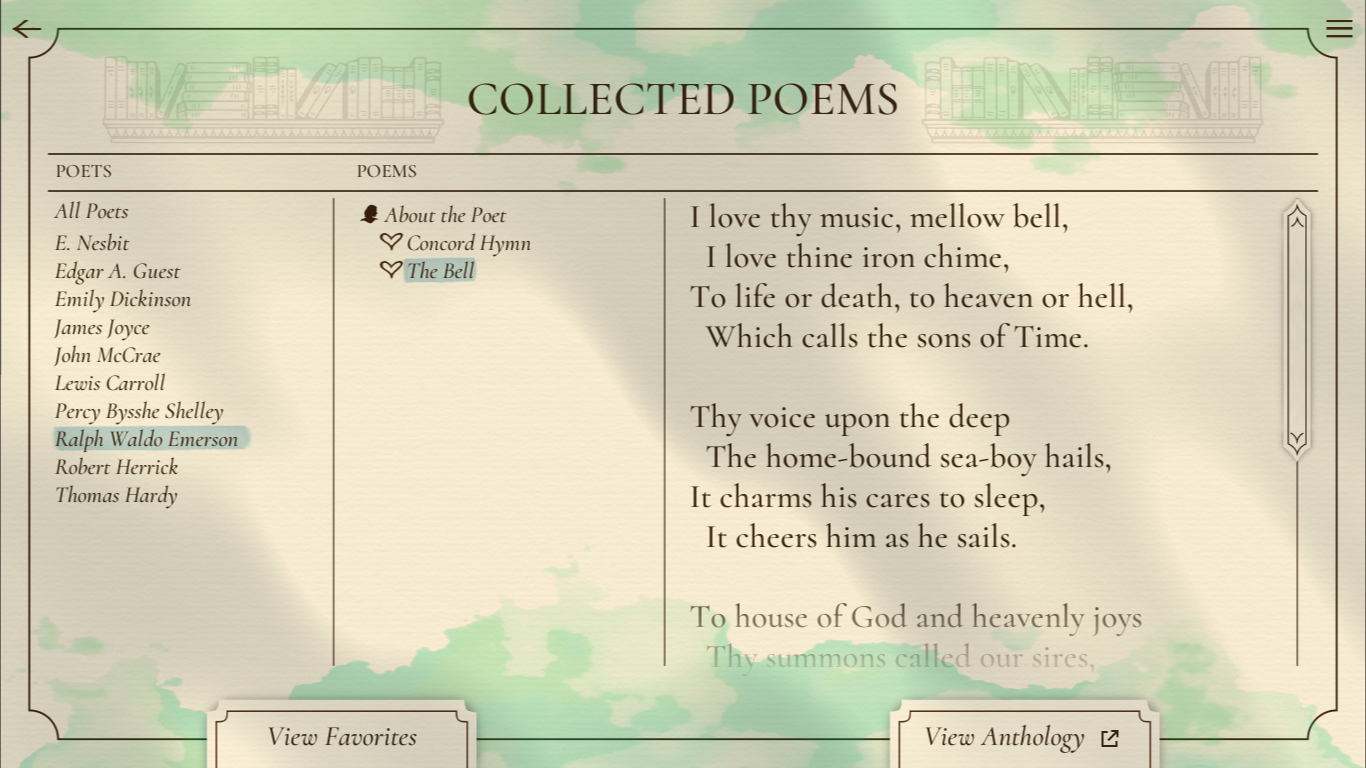
Assuming the typo I encountered in one Lewis Carroll stanza was a rare aberration, there’s very little chance I’ll abandon this little life-enricher unfinished. Crammed with memorable phrases, vivid images, and bona fide wisdom, Poems & Codes reminds me why I once read other things than history books and novels.
* * *
Executanks
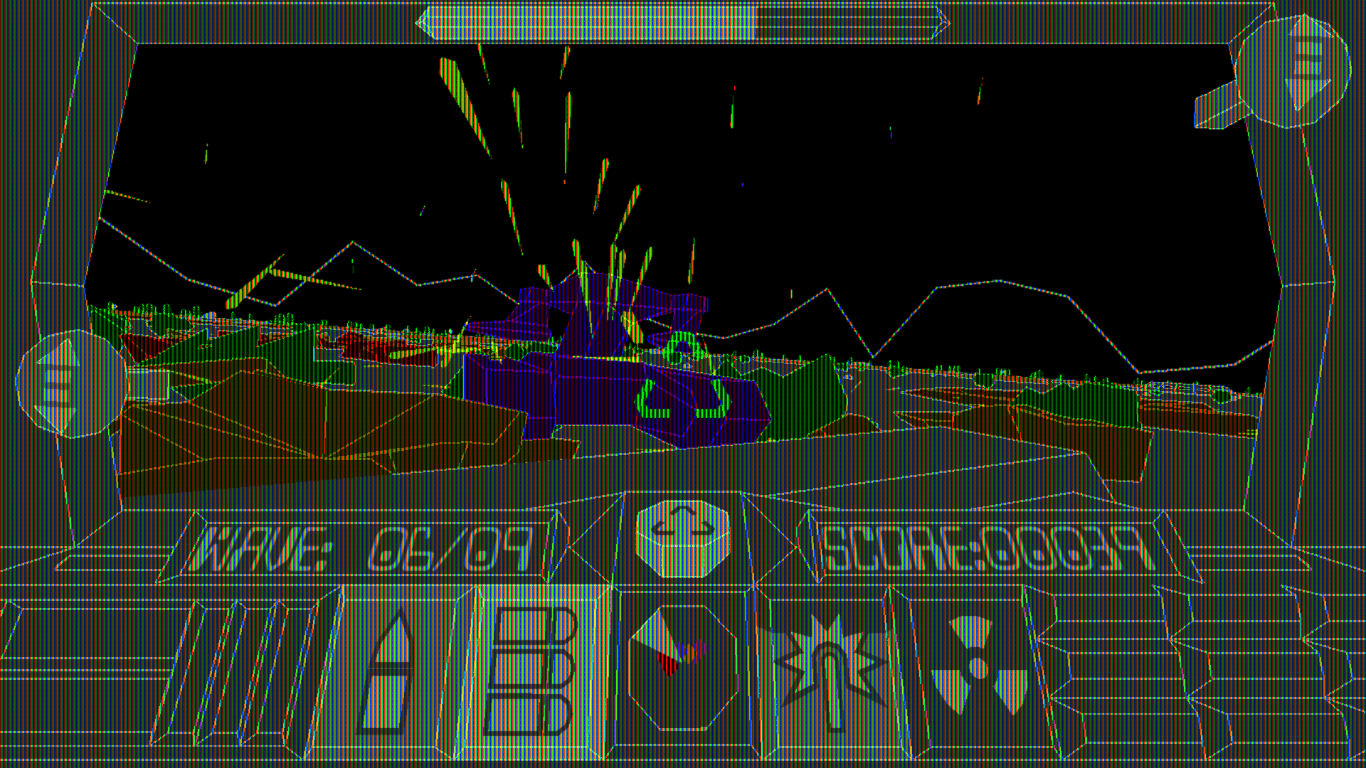
I’ve been separated from Ada, my new PC, this week, which means Railroader, a train sim I’d planned to include in this 3×3, has had to give up its slot to a less technologically demanding substitute (To compensate, Railroader will get an entire feature to itself next Friday). That substitute is a fine homage to the arcade sensation that, in 1980, introduced first-person gunnery and true 3D graphics to the video gaming public.
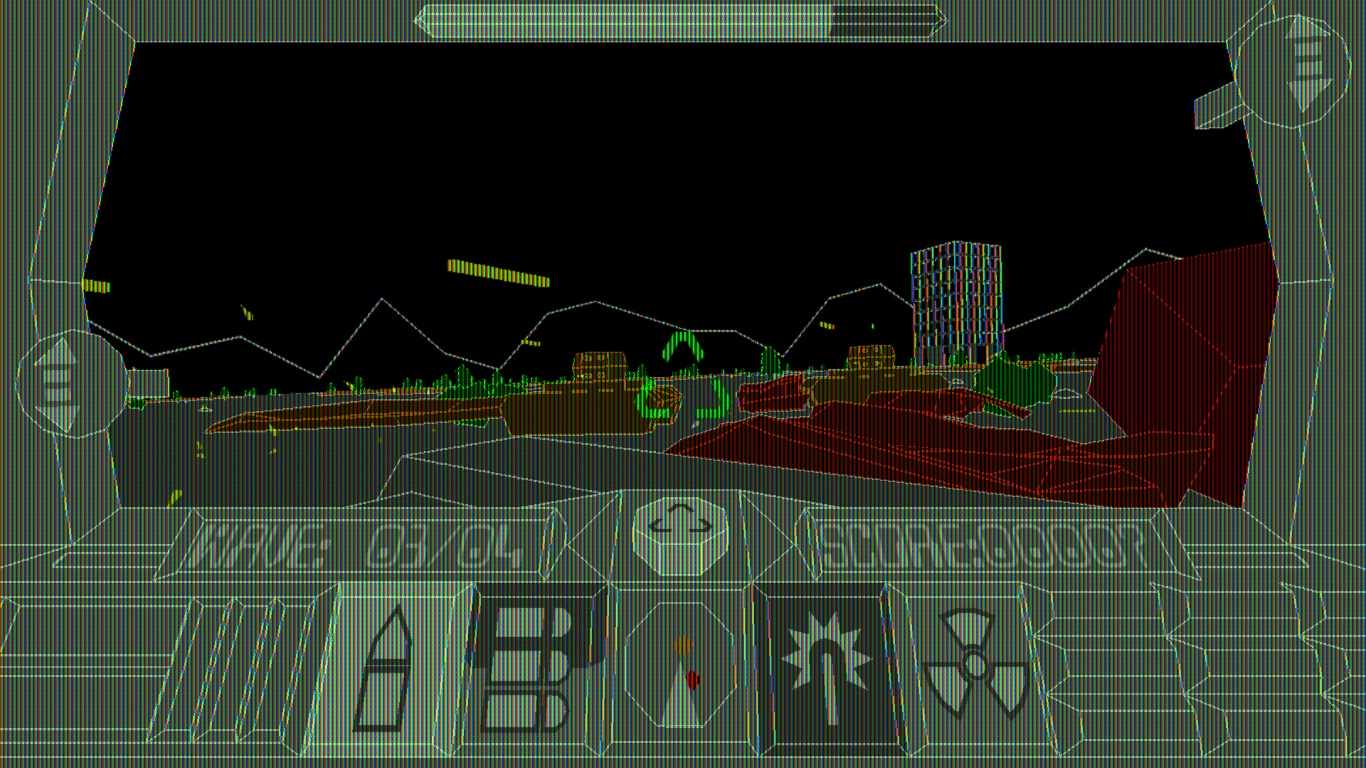
Like the landmark that inspired it, the dirt-cheap (2USD), demo-blessed Executanks is a sci-fi tank sim set on a flat plane. Enemies come at you in waves from all directions, and the action gets more frantic the more of them you kill and the longer you survive.
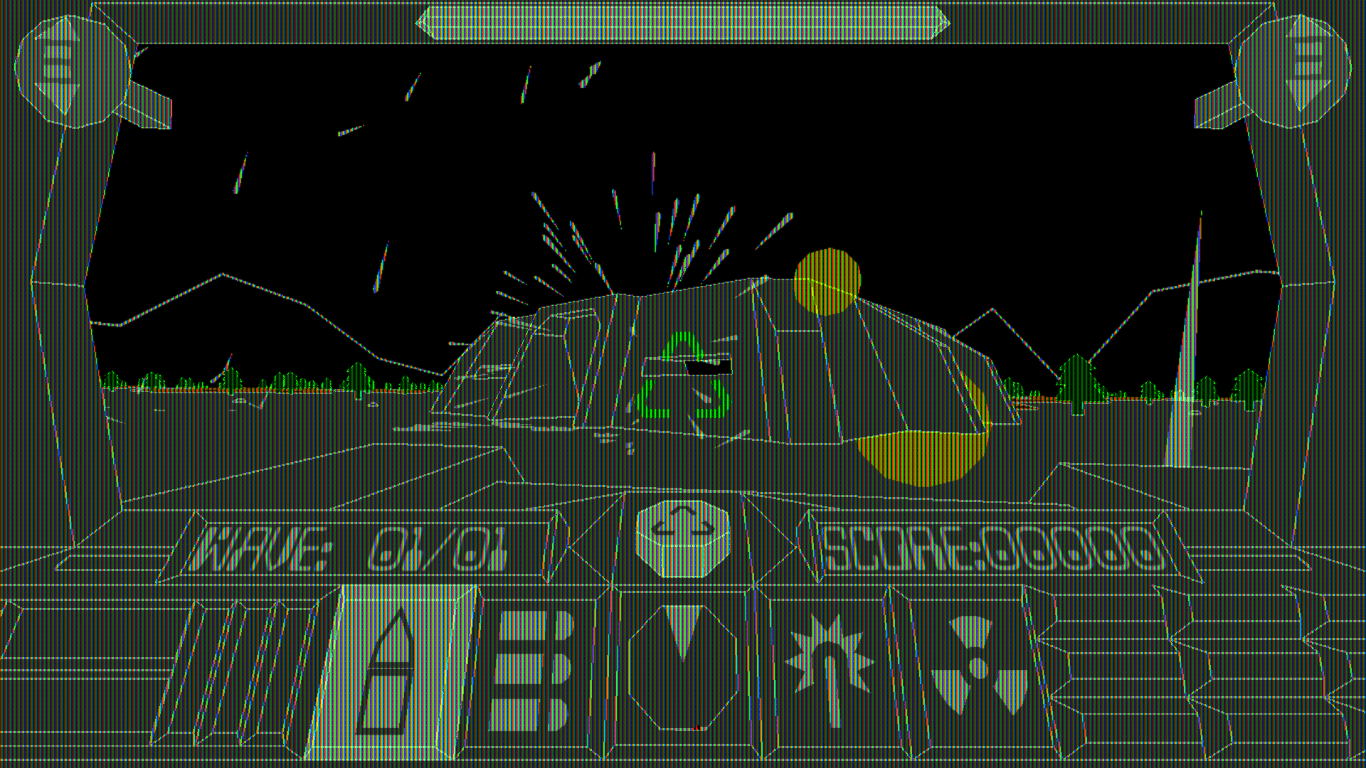
George Prescott (aka Silicon Galaxy) freshens the formula with new foe types and weapons. Fairly quickly the relatively sluggish ‘reds’ are joined by ‘browns’ – futuristic Wirbelwinds – and ‘purples’ – laser-spewing pests. Also capable of reducing your steed to a shower of bouncing fragments are several forms of pillbox and blockhouse.
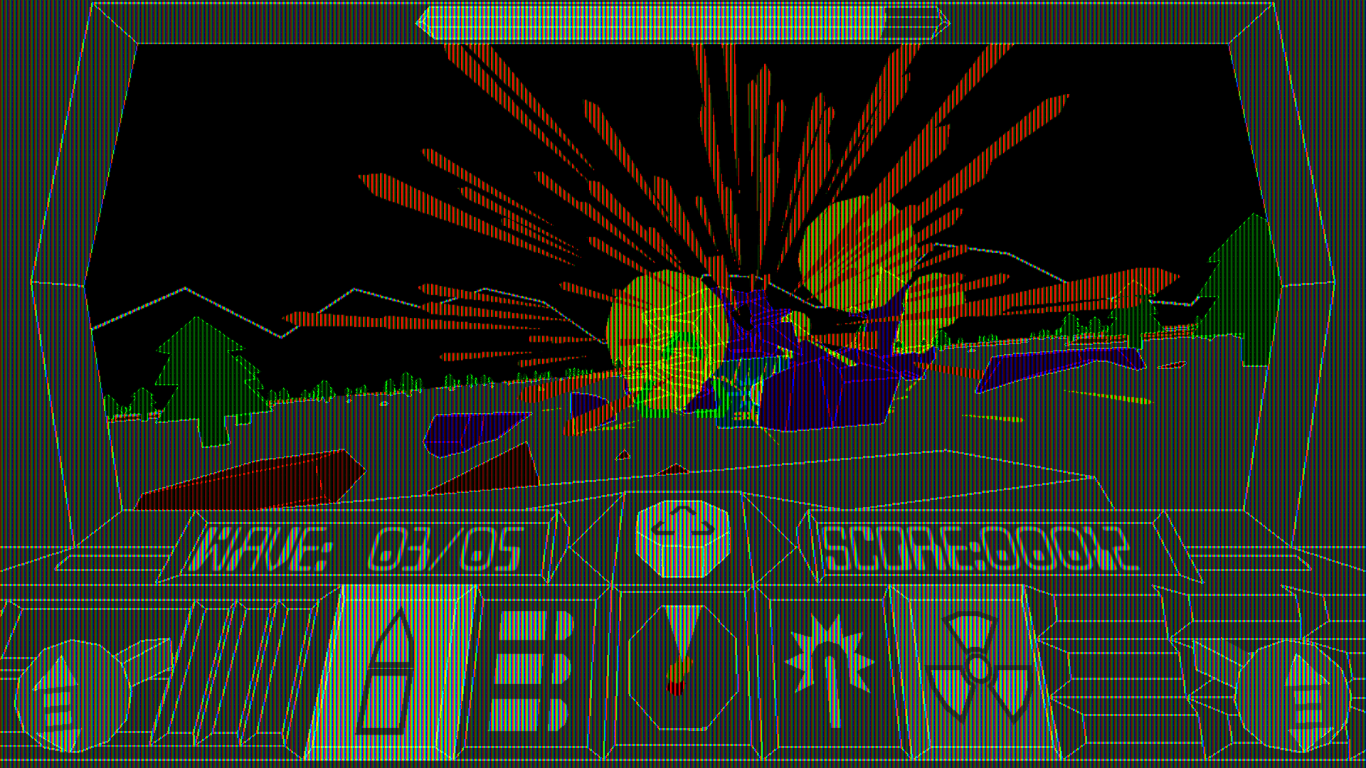
Each foe type has the potential to spawn a different power-up when obliterated. When you’re not manoeuvring to keep hostile trundlers at arms length, chances are you are dashing for the floating boxes that replenish your health bar and restock your three ammo bins. Unsurprisingly, the green cubes that furnish the game’s most devastating weapon, a plump single-use atom bomb, aren’t common sights.
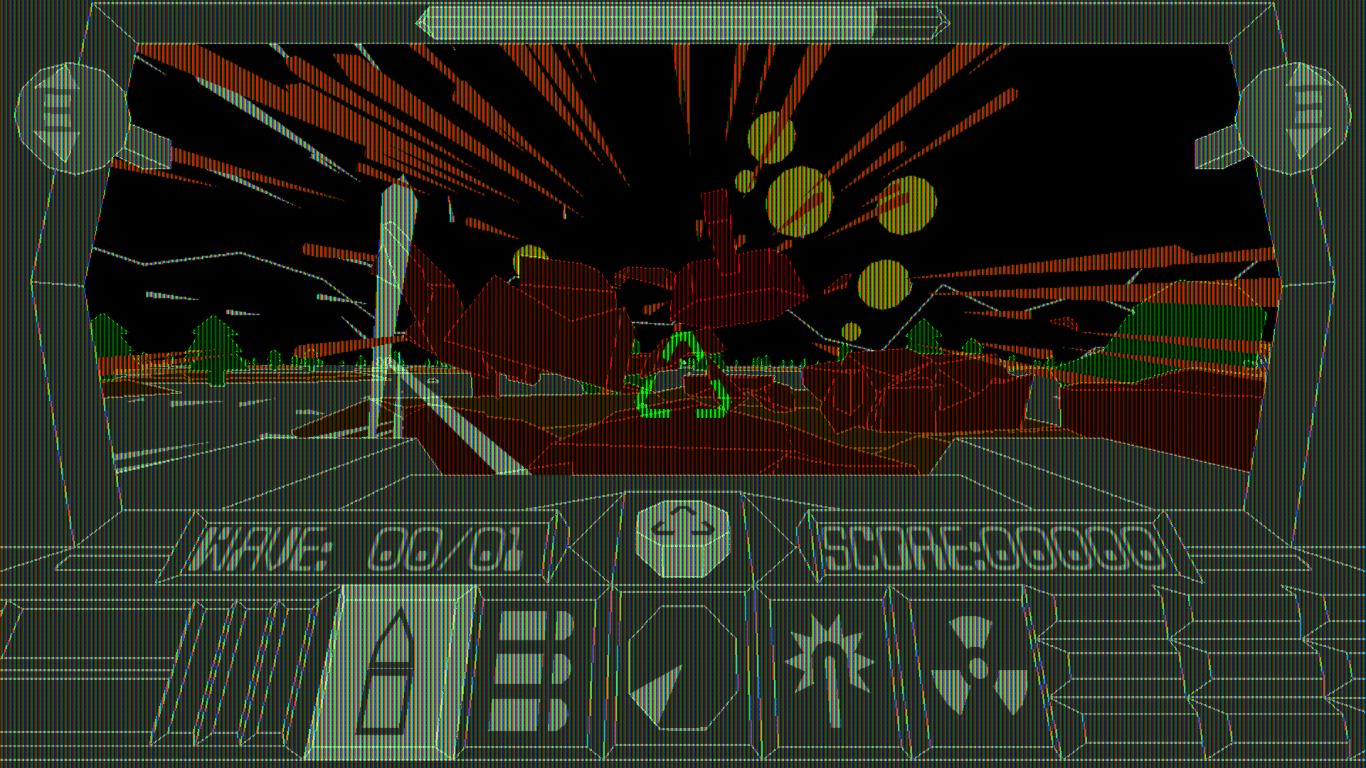
Lively physics, spectacular destruction, and a nicely-judged difficulty curve ensure things never get dull and the inevitable demises, when they arrive, don’t dishearten. Trees and debris block shots and sap MPH. At times you’ll need to reverse to part company with a bulldozed fragment, or elevate your gun to target a threat that has collected its own hunk of accidental armour or hopped into the air after driving over a ramp-shaped obstruction. With one eye on the scanner and one on the 3D view, and fingers simultaneously directing both hull and turret, the Executank commander ends up in a very simmy headspace, albeit without the welter of key strokes to remember.
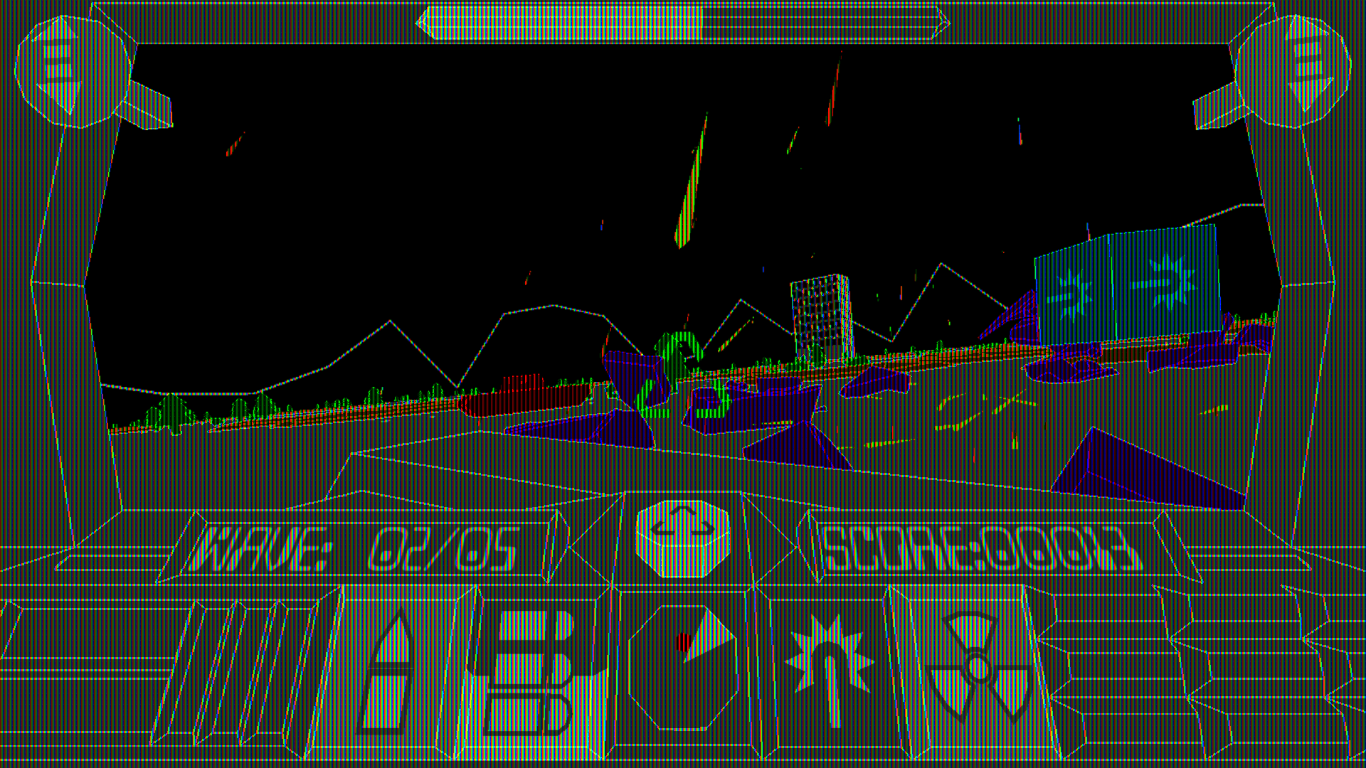
Executanks is a little treasure, but a small part of me wishes George had thought bigger. The engine is so good, the action so engrossing, it’s somewhat sad we don’t get a mission sequence along with the wave/survival mode. Picturing the giant OGRE-style boss tank players would face at the end of that sequence is absurdly easy.
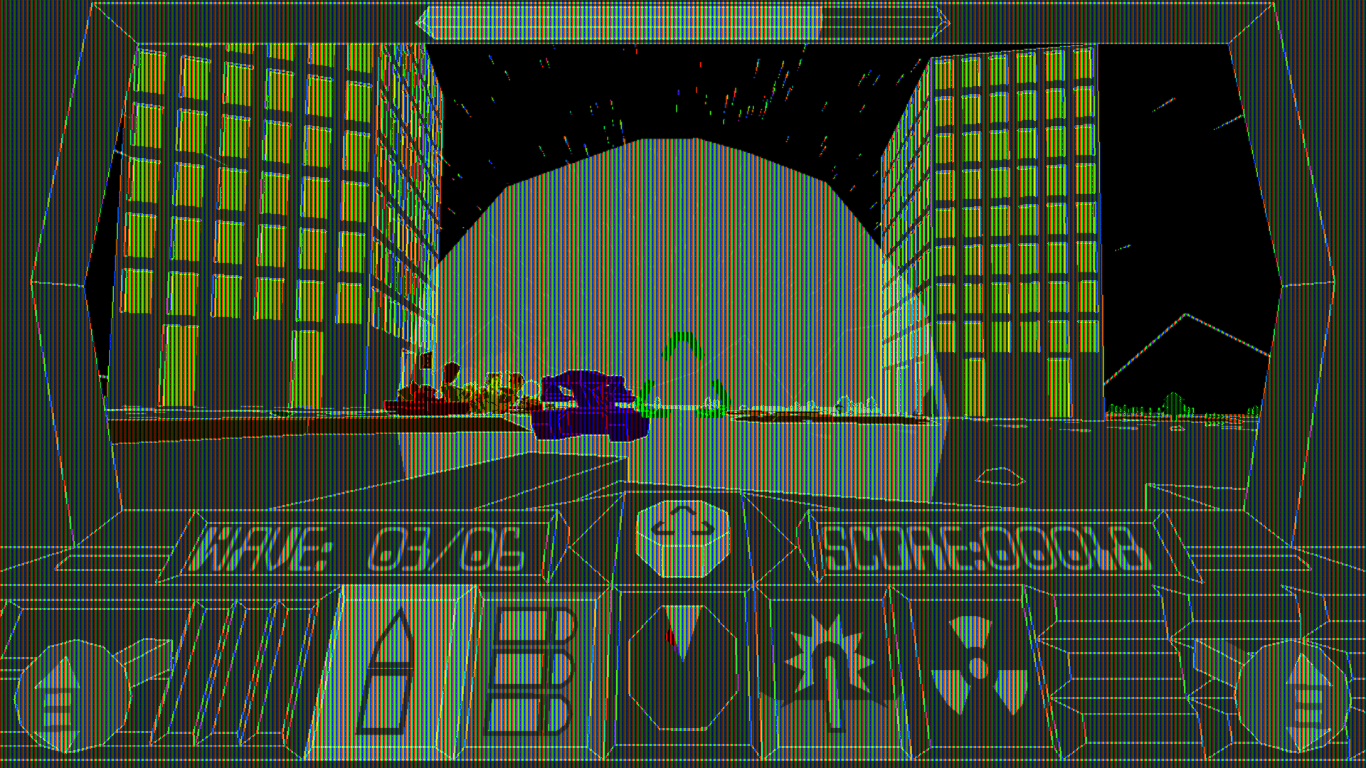

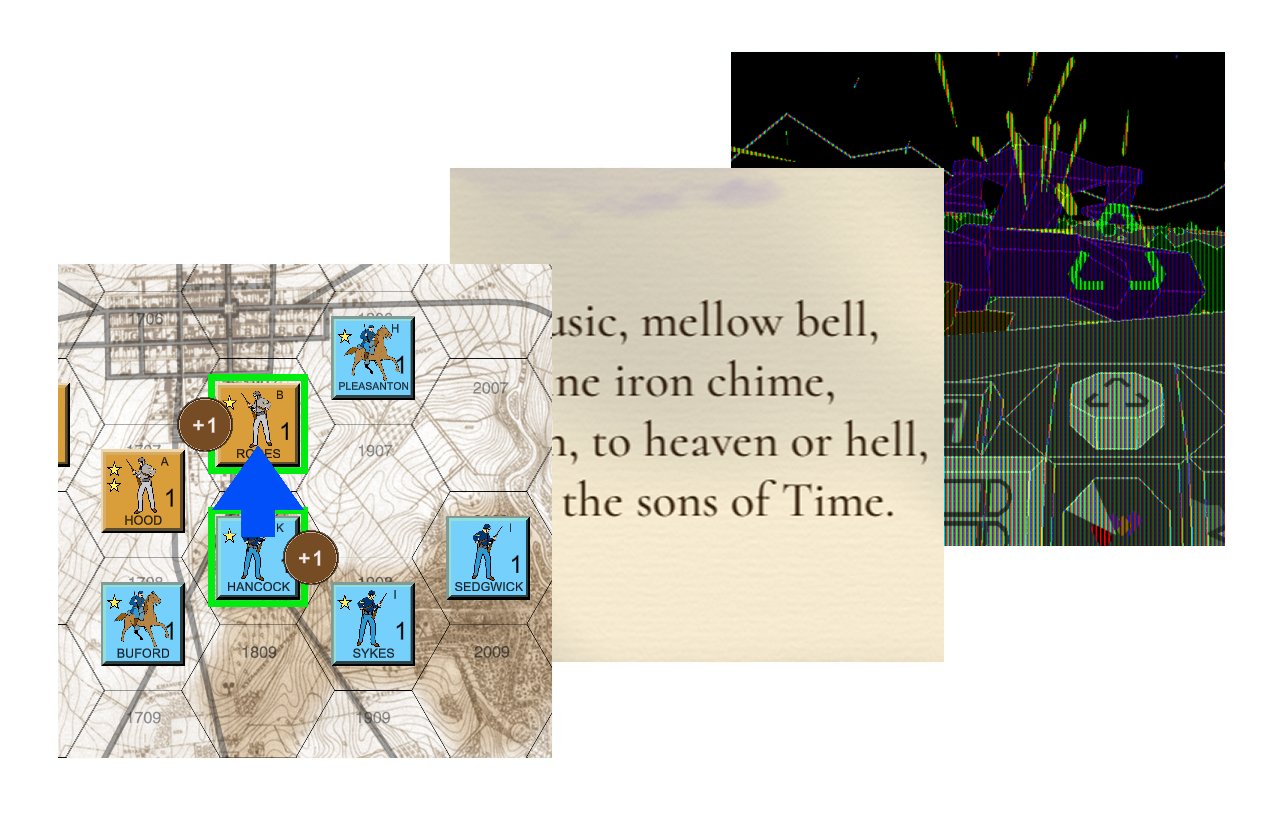
I’d be remiss if I didn’t take this opportunity to highlight the existence of the 1998 PC game Battlezone, which is a glorious sci-fi FPS/tank sim/RTS hybrid that I suspect would appeal to most THCers. It got an OK “remastered version” that’s available on Steam as Battlezone 98 Redux, which is the easiest way to try it out if you’re not a nut like me with several Windows 98 gaming desktops in the basement.
‘1998’ Battlezone is a favourite of mine too:
https://tallyhocorner.com/2023/08/review-reprise-battlezone/
Obviously, the RTS elements and lumpy terrain give it a very different feel to 1980 Battlezone. The Executanks-with-a-story I see in my mind’s eye would be much closer in feel to the original arcade game.
Reminds me of another game from the mid-1990s that I loved as a young teenager: “Terra Nova: Strike Force Centauri”.
Gamespot: “A breakthrough in outdoor 3-D action sims, Terra Nova gives mech games and flight sims something to aspire to.”
Well, everything from Looking Glass was a masterpiece…
Played and loved that one too, back in the day. Trieda replay, a couple of years ago and had to accept that it shows its´ age.
Wouldn´t mind the world being revisited by developers.
If years of tabletop and RPG gaming have taught me anything, then that I struggle to gel with single-dice systems. Modifiers or no modifiers, I have become so accustomed to bell curves of all kinds that their absence even makes me feel cheated.
Which is, obviously, kind of silly, I realize that.
> I struggle to gel with single-dice systems.
Me too. Interestingly, one Gettysburg player over at BGG plays with a ‘median 3d6’ house rule:
https://boardgamegeek.com/thread/2185667/outcome-probabilities
I suspect I’d use this if it was offered as an option in the computer version.
Anybody who spends his free time watching soldiers being blown to bits is clearly not in a good place.
Thanks for the free psych assessment! Unfortunately (?) it’s difficult to follow battlefield developments in Ukraine without exposing yourself to countless Twitter videos of Russian AFVs being destroyed. Like wargaming, war spectating definitely has dubious dimensions and attendant risks. The intro to the Poems & Codes piece was my way of admitting that.
It might sound trite, but the one coping with horrible things by looking and the one coping by rather looking away are in just the same place. It´s not a good one, either way. How could it be? We´re talking about war.
Personally, I feel the need to understand and so I spend time on that in a detached, academic way. Yet, I could not condemn someone tackling differently with the matter. Or not at all.
I answered assuming a comment made in good faith. Instead I could have written something along the lines of: “Implying you should deliberately ignore the deaths of thousands is not the flex you seem to think it is.” That would have taken half a sentence out of context and and interpreted it in the most hostile and reproachful way possible.
I have many fond memories of playing Battlezone as a kid, at my local pizza parlour, and feeding countless 20 cent pieces into the stand-up console version of the game. I loved the green wire frame animations, and being completely intrigued by the magic of it all. How on earth did it work? How could my tank survive longer than 30 seconds? Unforgettable memories viewed through the rose tinted glasses of nostalgia.
I reckon you’d love Executanks. I’m slowly climbing the High Score table. Achieving a top 5 position last night was very gratifying.
I challenge you to beat my record : )
Hello George! While I have high hopes of securing slot #3 in the High Score table, I reckon your 555 is safe as blockhouses. Besides the fairly obvious (“When faeces hits fan, use a nuke!”) do you have any tactical tips for ambitious Executankers?
Sorry for the late response.
Don’t destroy the buildings. They provide you protection and slow the incoming waves. Try to save special ammo for really hard battles. Try to not use any special ammo. Priorize main cannon until you can not destroy enough tanks.
As red tanks deliver repair powerups try to be near of them so in case you need to be repaired you can destroy them at any moment.
555 tanks destroyed is completely beatable.
When i made that record i died cause i commited a mistake. I think if i try very hard again i could even make about 800 tanks.
I hope you find this hints usefull. Enjoy the game : )
I played a similar Code game demo over xmas with Mrs Nutfield, it was sections of books. The problem was after about 2 puzzles, you’d seen it all, there was nthing about different code types or weirder word puzzles, just the same things over and over again.
Tbh, Sporcle does it better (With an insane number of pop up ads!), as they have some great word puzzles on there for free.
Yes, I’m well practiced with substitution cryptograms so wasn’t sure how much mileage I’d get from P&C (plus, based on the title, I was a little disappointed that the game didn’t relate to WW2 poem codes, which probably isn’t fair of me!).
I’m intrigued by the focus on presentation and ‘whole’ documents rather than short quotations, though. I think my ideal would be somewhere between this and something like Cypher. A hands-on attack on a library of texts encrypted using some variety of codes.
The book game might’ve been “Prose & Codes”, an earlier release by the same dev couple. I’ve played the demos for both and found Prose harder: it needed thinking time, progress was slow, a couple I had to restart a few times, and I needed hints to even begin two.
To its’ credit, it does have a rocking quote:
https://imgur.com/a/Cu5efy8
and links to the source books on Project Gutenberg.
With the exception of a brace of well known verses, I found the Poems demo a lot more satisfying. It may be the rhyming structure, together with punctuation, but the ins came to me much easier. Somehow, I felt the entirety of the verse was being gradually revealed, rather than just words or clauses as in the Prose one. Inspiration would come rapidly and connected to what came before that I perceived as long solving streaks.
I tended to start with single-letter words, A and I; and three-letter words, AND or THE. As opposed to Colonel K’s efforts, ‘O!’ was surprisingly rare.